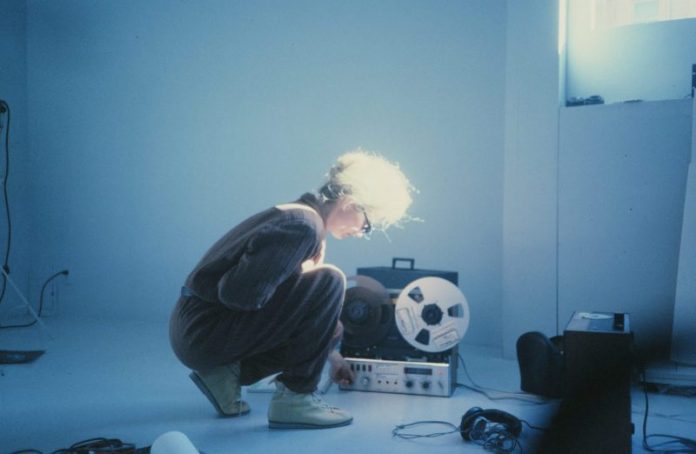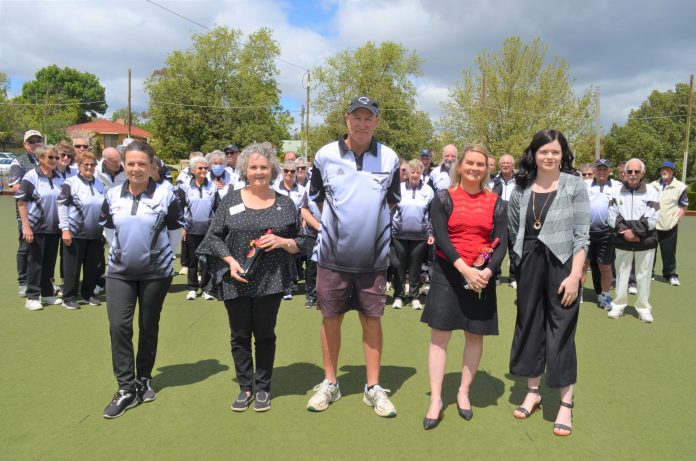Castlemaine community radio station MainFM 94.9 is turning up Australian music this week, November 15-21, bringing listeners a week of home-grown talent in honour of Australian Music Month.
The station’s 100+ volunteer presenters will celebrate everything that’s great about Australian music and turn their attention to Australian artists by presenting music shows with 100% Australian content, or playing even more local content than normal, with special programs, interviews, retrospectives and playlists.
Ausmusic Week at MainFM coincides with Ausmusic T-shirt Day this Friday November 19 which raises money for Support Act, who have been a huge support to Australian musicians and industry workers over the past 18 months.
Tune into 94.9FM or listen live mainfm.net
Celebrating Aussie music
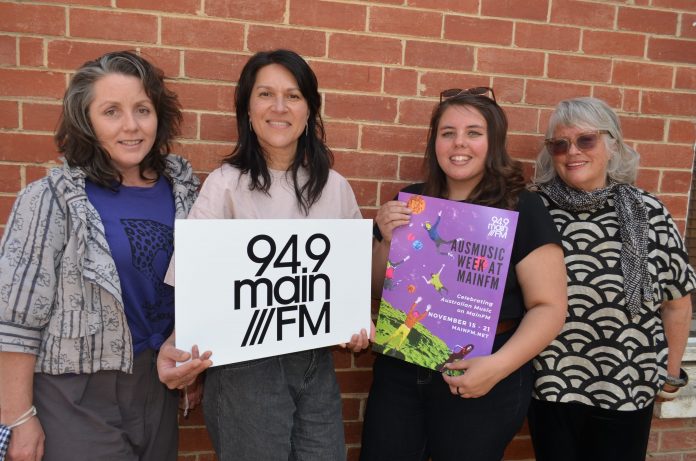
Rifle shooters return to the range
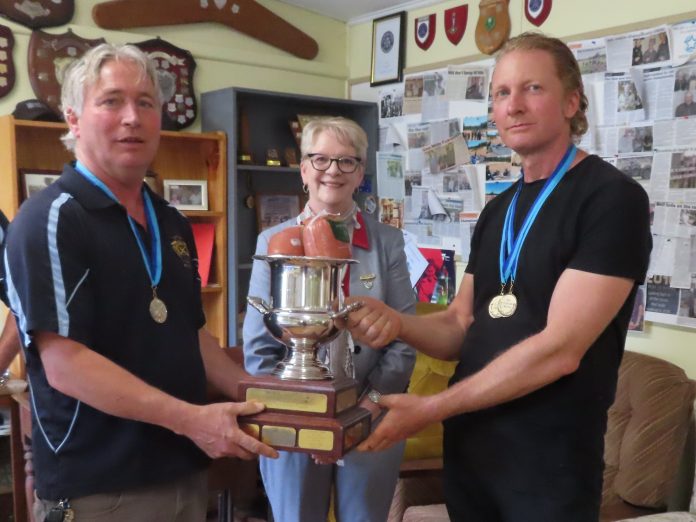
The Castlemaine Rifle Club was finally back in competition on Saturday. The club held its ‘Invitational Prize Meeting’. The first for two years.
A good number of shooters from around Victoria competed for some excellent badges and trophies. The first two rounds were shot over 500 yards, and the third round over 600 yards. Each range consisted of 10 scoring shots for a total of 30 scoring shots.
Medals and trophies were awarded to placegetters in ‘Target Rifle’, ‘F Class’ (two grades) and ‘F Open’. Conditions were pretty good with shooting finishing just as the rain came. See the Mail for the full story.
Sisters with transistors
The Castlemaine Documentary Film Festival (C-DOC) has three big pop-up screening events coming up in November and December.
The first one is set for next Thursday, November 18 and will see Sisters With Transistors hit the big screen at Castlemaine’s Theatre Royal along with the unique sounds of composer Louise Terra.
The special event will get under way at 7.30pm.
The film explores the history of electronic music from the point of view of the overlooked female pioneers in a film with style and substance, told by Laurie Anderson. See the Mail for more…
CAM welcomes new guides
After an exciting year of discovering and discussing Castlemaine Art Museum’s (CAM) collection, the CAM team are proud to welcome Debra Petty, Toni Miles, Maria Moir and James McArdle as their newest Volunteer Guides.
They bring a wealth of arts-based knowledge and experience to an already formidable team.
CAM general manager Nell Fraser thanked CAM’s experienced Volunteer Guides who made this training possible, skilfully navigating COVID-19 restrictions.
Local sculptors to feature
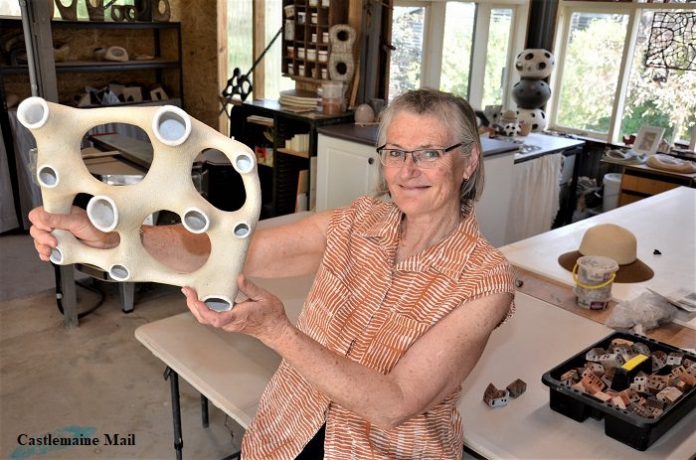
Eve Lamb
Getting set to open her local ceramics studio to the public next weekend, Castlemaine ceramics sculptor Ann Ferguson has just had some great news.
She and Green Gully sculptor Diane Thompson have both been named among the finalists in Sydney’s Woollahra Small Sculpture Prize.
The welcome news of making the finals comes as Ann also prepares to open her studio in Castlemaine’s Bowden Street as part of a creative event aimed at unearthing the wider region’s local potters.
The Australian Ceramics Open Studios event takes place over November 13-14, next weekend, and Ann says she’s looking forward to sharing insights into her art and her studio.
“It’s really exciting,” she said after learning she’d made the finals of the Woollahra Small Sculpture Prize. Read more in today’s Mail…
Collaborative arts couple named Doug Moran finalists
Eve Lamb
Two Castlemaine artists who collaborate together have made the finals of the prestigious Doug Moran National Portrait Prize – Australia’s richest art prize.
Lyndell Brown and Charles Green are named among the finalists for this year’s Doug Moran with their collaboratively produced portrait of Australian Indigenous Yolngu painter, filmmaker and curator, Wukun Wanambi.
“This portrait is of one of the most remarkable men we have ever met,” Brown told the Mail.
The two local artists met the well-travelled, charismatic Yolngu senior elder, Wanambi, during a 2019 conference of artists and academics held in the top-end community of Yirrkala
“He made us feel honoured guests despite his heavy cultural obligations and his own frail health,” Brown told the Mail this week.
“The portrait is a tribute to a remarkable man who impressed himself deeply upon us in our conversations with him and to whom we felt deeply grateful.” Read more in today’s Mail.
Flash flooding fallout
A house in Campbells Creek is among the area’s most severely impacted by this week’s flash flooding event.
Some 50 millimetres of torrential rain doused the immediate area over about 30 minutes late on Wednesday afternoon causing flash flooding with Castlemaine Primary School and Mostyn Street’s medical clinic among CBD infrastructure impacted in Castlemaine.
The medical clinic in Mostyn Street and primary school on Urquhart Street were among callouts received by Castlemaine’s SES as the deluge struck. Read more in today’s Mail…
New look for historic club
Castlemaine Bowling Club held their season opening event on Saturday October 30. Fifty four bowlers attended and looking very smart in their new uniform were eager to get the season under way. The greens and clubhouse are looking very good and although the weather was cool it stayed fine.
Director Rod Phillips welcomed invited guests and bowlers and thanked sponsors Waller Realty, the Rotary Club of Castlemaine and Evolution Copy Print Solutions for making the new look shirts which celebrate the club’s heritage possible. See the Mail for the full story.
Brass concert tomorrow
Brasslemaine are performing the second of their series of boutique concerts this Saturday November 6 at 7pm at the Castlemaine Uniting Church. The proceeds will be donated to ‘Just Brass’ an innovative free primary school music program operated by the local Salvos.
Entry is by $20 donation for adults, $15 concession and $5 for children. Children Under 5 free. For bookings call Dean on 0408 417 877 or Alison 0419 597 765. Patrons will need to show proof of double vaccination.
Major project gets underway
Work got underway this week on the Castlemaine Steiner School’s highly anticipated $1.28 million Science and Technology Lab.
Members of the school community gathered on the site on Friday to turn the first sod on the project which has been made possible
thanks to a capital grant from the Federal Government.
Castlemaine Steiner School administration and marketing officer Rachael Pearce said they we are excited to expand their buildings to include the dedicated Science and Technology Lab for senior students.
The space will include state-of-the-art science, technology and computer studies facilities, universal access toilets and a ‘hang out’ area Class 7 and 8 students. The building has been designed by Life Design Architecture and the tender for construction has been awarded to Searle Brothers Builders. See the Mail for more.
The brides have chosen…
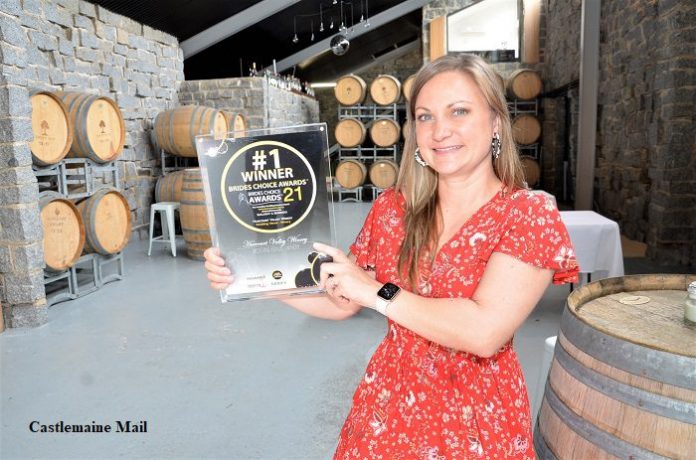
Eve Lamb
The brides have spoken – and what they’ve said is reason to drink a toast at one local Harcourt winery.
Harcourt Valley Vineyards Winery has taken out a coveted 2021 Brides Choice Award after brides over the past year voted the venue the best wedding winery venue for the Ballarat and Bendigo region.
The national annual Brides Choice Awards are dedicated to rewarding wedding sector businesses that operate in regional areas of Australia.
The brides themselves vote in their top choices across just about every aspect of the wedding industry, from DJs and wedding cakes to hairstylists, photographers and, of course, the all-important venue for The Big Day.
News of the category coup for Harcourt Valley Winery comes as it faces an exceptionally busy time ahead with a considerable backlog of weddings booked up following multiple postponements of many couples’ special days due to the impacts of COVID on events and hospitality. Read more in today’s Mail…
Sticky issue causes stink
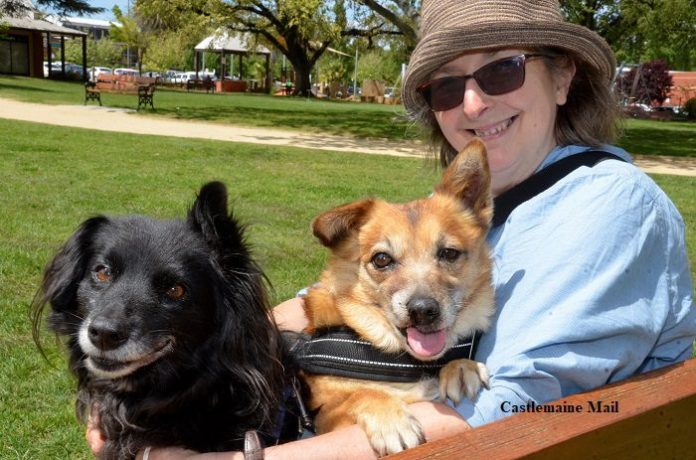
Eve Lamb
The sticky subject of dog deposits in public places gained traction at last week’s Mount Alexander Shire Council meeting amid a fresh public venting of frustration at pooch owners who fail to pick up after their recently relieved canine companions.
Castlemaine’s Diane Linton aired the matter during public question time.
“I’m still waiting to receive a notice regarding the new regulations for cat and dog ownership which will include notification to dog owners to pick up their animals excrement,” she said in a letter read presented to the council.
Read more in today’s Mail…


